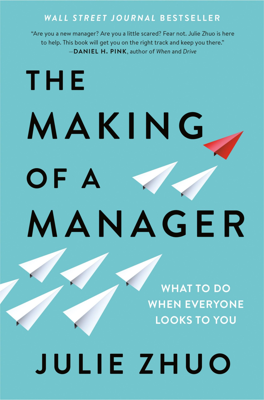Amazing Meetings
Planning Effective Meetings
Julie Zhuo highlights the importance of thoughtful meeting planning to ensure all sessions are valuable and engaging. Inefficiencies often arise when meetings lack clear purposes or outcomes.
What Is a Great Outcome for Your Meeting?
Decision Making: Focuses on framing options and aiding the decision-maker. Ensures inclusivity and trust in the process.
- Clear decision.
- Inclusivity of all affected stakeholders.
- Objective presentation of options with relevant information.
- Equal airtime for dissenting opinions.
Sharing Information: Meetings are more interactive and engaging than emails or memos. They allow for Q&A and emotional engagement.
- Valuable learning experience.
- Memorable and clear communication.
- Audience engagement through dynamic presentation and interactivity.
Providing Feedback: These meetings aim at improving work rather than seeking approval.
- Clear understanding of project success.
- Honest status representation.
- Framed open questions for feedback.
- Agreed-upon next steps.
Generating Ideas: Combines individual brainstorming with group discussion for maximum creativity.
- Many diverse ideas.
- Inclusion of all voices.
- Idea evolution through discussion.
- Clear action steps.
Strengthening Relationships: Investments in team bonding can ease collaboration and increase trust.
- Better understanding and trust among participants.
- Encouraging openness and authenticity.
- Making participants feel cared for.
Efficient Meeting Practices
Invite the Right People
- Ensure only necessary participants are invited.
- Balance between inclusivity and maintain focus.
- Avoid overloading meetings with unnecessary attendees.
Give People a Chance to Come Prepared
- Share agendas and materials in advance.
- Encourage preparation for informed participation.
- Follow-up with detailed notes and action items.
Make It Safe for People to Contribute
- Foster a supportive and nonjudgmental environment.
- Explicitly set participation norms.
- Structured participation methods, like going around the room or using Post-it notes.
- Manage equal airtime and engage quieter participants.
Reevaluate Meeting Necessity
- Audit personal calendar for essential meeting participation.
- Eliminate unnecessary meetings to free up time for critical tasks.
- Regularly review the value and effectiveness of recurring meetings.
Conclusively, effective meetings are essential for achieving goals, fostering collaboration, and maintaining team morale. Thoughtful planning, inclusivity, and structured participation are crucial for making meetings productive and engaging.
